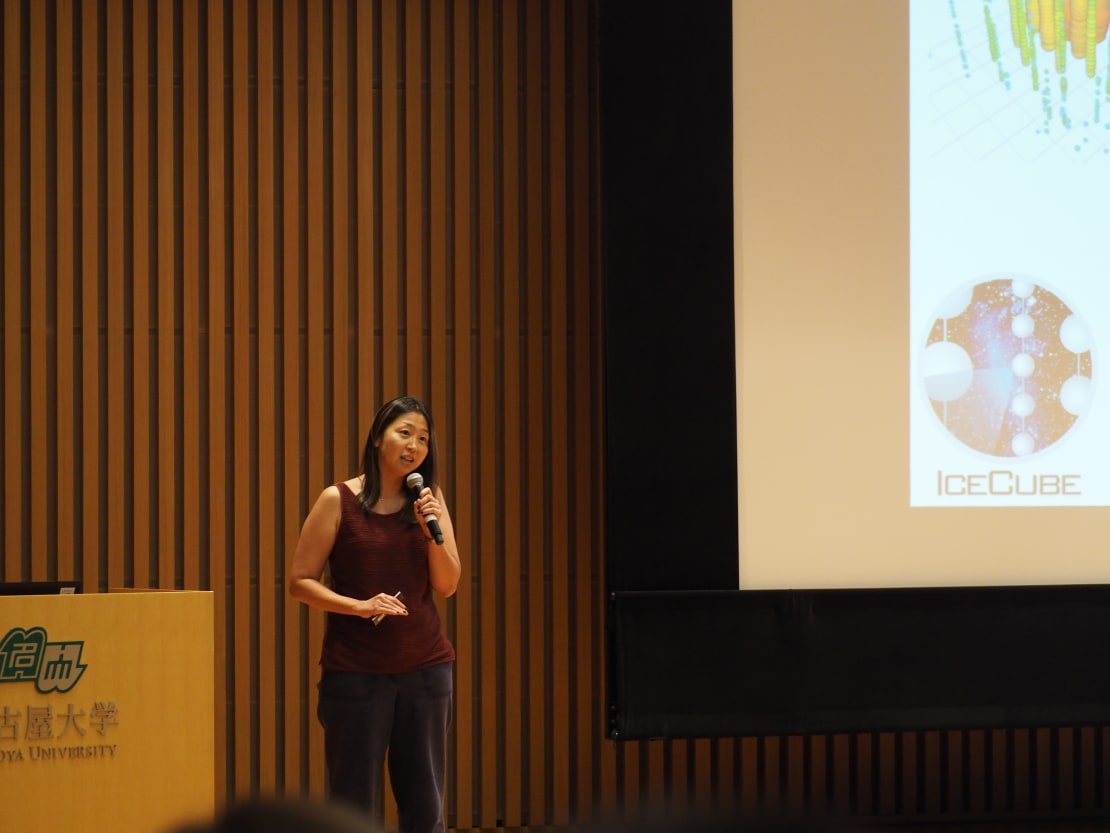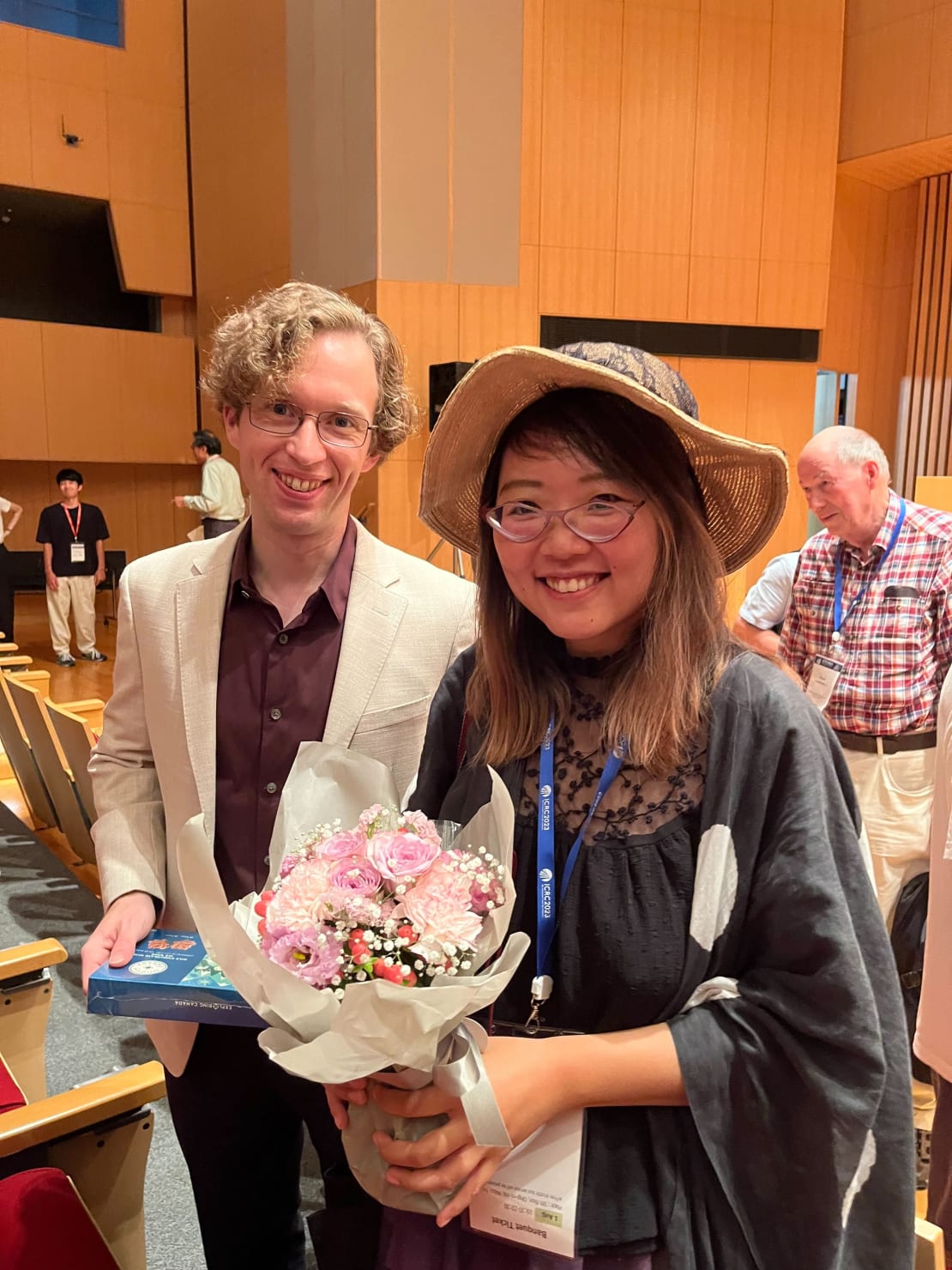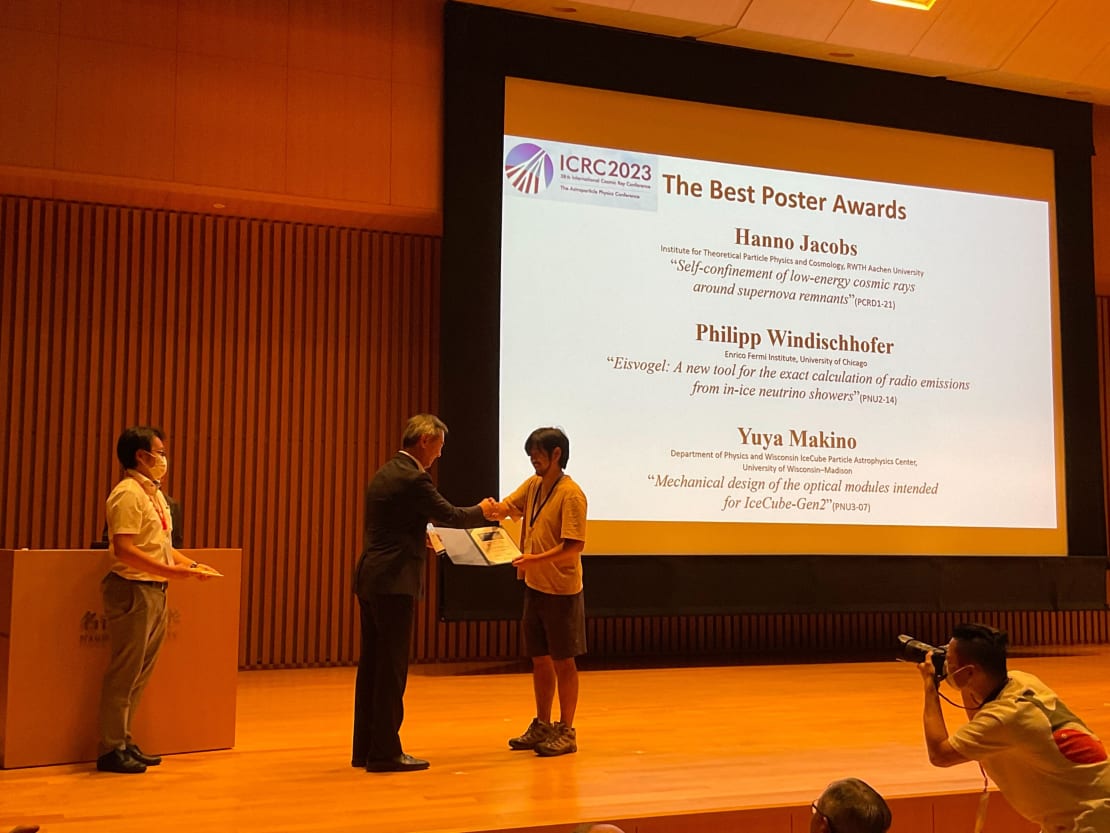
Last week marked the end of the 38th International Cosmic Ray Conference (ICRC), the largest conference in the world for cosmic ray physics. The weeklong conference was held July 26-August 3 at Nagoya University in Nagoya, Japan. ICRC 2023 was the largest ICRC in history, with a record number of 1,406 participants (1,102 onsite and 304 online) from 54 countries, 1,638 abstracts received, and 1,524 contributions presented.


The main topics covered included cosmic-ray physics, gamma-ray astronomy, neutrino astronomy and neutrino physics, dark matter physics, solar and heliospheric physics, multimessenger astronomy, and a brand new topic, gravitational wave astronomy.
The IceCube Collaboration was once again well represented at ICRC 2023; collaborators submitted a total of 89 contributions (37 talks and 52 posters), including a highlight talk: “Highlights from the IceCube Neutrino Observatory” by Naoko Kurahashi Neilson. Out of the 89 contributions, 11 were on IceCube-Gen2, the planned IceCube extension. A full list of contributions and links to proceedings can be found here: IceCube and IceCube-Gen2.
During the conference, multiple IceCube collaborators were honored with various accolades. At the opening ceremony on July 27, the 2023 Shakti Duggal Award was awarded to Hans Niederhausen, a postdoctoral associate at Michigan State University, and a 2023 IUPAP Early Career Scientist Prize was given to Lu Lu, an assistant professor at the University of Wisconsin–Madison. During the closing ceremony on August 3, IceCube collaborator Yuya Makino won the ICRC best poster award for “Mechanical design of the optical modules intended for IceCube-Gen2.”
The 39th ICRC is scheduled to take place in July 2025 in Geneva, Switzerland.
